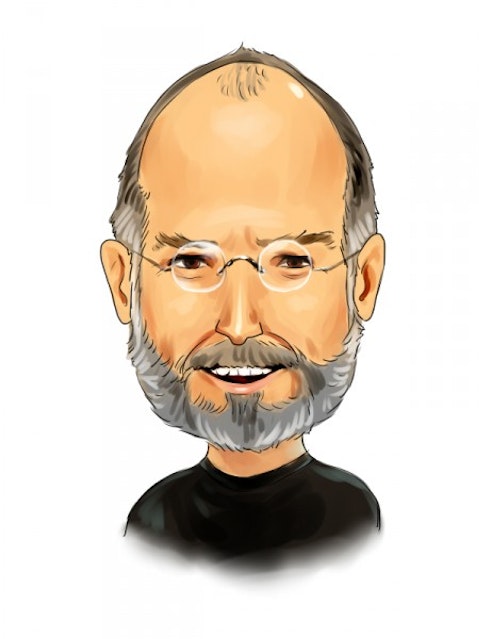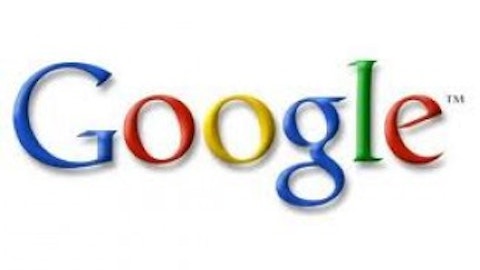
Flickr, TaxCredits.
Some don’t like talking about it because it’s political, but the shift in wealth inequality is one of the most important economic stories of the last 20 years.
Harvard economist Greg Mankiw — one of the smarter economic thinkers of our day — wrote a thought-provoking paper on wealth inequality this week that makes an important point: No one should (and few do) look down on wealth earned by those who create valuable goods and services. Bill Gates. Mark Zuckerberg. Steve Jobs. These men became astronomically rich, but they transformed our lives for the better — and people love them for it. Mankiw’s paper broadly argues that wealth inequality is a good thing if those getting rich are the Gates, Zuckerbergs, and Jobses of the world. And he’s right, of course.
Here’s the problem, Mankiw writes:
The last thing we need is for the next Steve Jobs to forgo Silicon Valley in order to join the high-frequency traders on Wall Street. That is, we shouldn’t be concerned about the next Steve Jobs striking it rich, but we want to make sure he strikes it rich in a socially productive way.
But he glosses over the fact that this seems to be exactly what’s happening.
Consider:
18% of those on the 2010 Forbes list of richest Americans made their wealth from the financial services industry. In 1985 (the earliest I could find data on), the figure was less than 1%.
In 2007, the Harvard Crimson reported that 47% of the school’s seniors were entering finance or consulting.
Even after the financial crisis, more than one-third of Princeton’s graduating class went to work in the financial services industry. That’s four times the industry’s share of the overall economy. At Harvard, the figure was 28% as recently as 2008, and 26% at Yale.
Apple Inc. (NASDAQ:AAPL) and Google Inc (NASDAQ:GOOG) spent more on patent lawsuits in 2011 than on research and development, according to The New York Times.
Or take these two recent headlines:
“Goldman Sachs receives 17,000 applications for [a 350-slot] internship program”
“Companies Claim Not Enough Qualified Americans For IT Jobs”
Goldman Sachs Group Inc (NYSE:GS) president Gary Cohn commented on the first headline: “The vast majority were highly qualified kids … The amount of resumes we get for full-time [positions] is in the 50,000, 60,000, 70,000 range.”
Meanwhile, as Facebook Inc (NASDAQ:FB)‘s Mark Zuckerberg put it in February: “Our policy is literally to hire as many talented engineers as we can find. The whole limit of the system is just that there just aren’t enough people who are trained and have these skills today.”
The reason the inequality debate strikes a nerve with many is that an inordinate amount of our country’s brain power has gone toward financing stuff, rather than designing, engineering, and making stuff. No one wants fewer rich people. Instead, I think more people just wish the next billionaire made their fortune from engineering iPhones instead of engineering mortgage fraud.
Josh Brown summed it up best:
It is not that Americans hate successful people or the wealthy. In fact, it is just the opposite. We love the success stories in our midst and it is a distinctly American trait to believe that we can all follow in the footsteps of the elite, even though so few of us ever actually do.
So, no, we don’t hate the rich. What we hate are the predators.
What we hate are the people who we view as having found their success as a consequence of the damage their activities have done to our country. What we hate are those who take and give nothing back in the form of innovation, convenience, entertainment or scientific progress. We hate those who’ve exploited political relationships and stupidity to rake in even more of the nation’s wealth while simultaneously driving the potential for success further away from the grasp of everyone else.
That’s all there is to it.
The article The Kind of Money Americans Hate originally appeared on Fool.com and is written by Morgan Housel.
Fool contributor Morgan Housel has no position in any stocks mentioned. The Motley Fool recommends Apple, Facebook, Goldman Sachs, and Google. The Motley Fool owns shares of Apple, Facebook, and Google.
Copyright © 1995 – 2013 The Motley Fool, LLC. All rights reserved. The Motley Fool has a disclosure policy.





